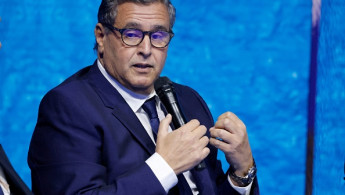Amazigh World Congress slams Morocco over its ongoing anti-Amazigh policies
Morocco's government maintains a "dangerous racism against the Amazigh community" in the kingdom, said the Amazigh World Congress (CMA) in a recent press release.
"The overall observation is that, apart from promises without an agenda, no significant measure has been taken in favour of the recognition and respect of the rights of the Amazighs," added the Paris-based international NGO.
The National Rally of Independents (RNI), the current ruling party in Morocco, owes its victory in the September 8 elections mainly to the endorsement of the Amazigh community.
Amazigh politician Aziz Akhannouch, the Moroccan PM and head of RNI, heavily leaned on his political identity and his party's electoral promises in confronting the indigenous community's concerns and issues.
Yet once in power, Akhannouch and his party have failed to deliver.
In January, Akhannouch's cabinet did not issue recognition of the Idh Yennayer, the Amazigh New Year, as a national paid holiday - which would have been a symbolic recognition of the Amazigh identity.
Also on hold is real-time Amazigh translations during the parliamentary session.
The CMA has also criticised the absence of Tamazight in Moroccan administrative papers as passports and IDs, despite recognising Tamazight as an official language in Morocco a decade ago. Administrative paperwork, media and school programmes in Morocco are still widely dominated by the French language since the colonisation era.
"In other words, the government endorses the violation of Moroccan laws and maintains serious state racism against Tamazight," said the Amazigh Congress.
In its communique, the Amazigh Congress lambasted Akhannouch for using the Amazigh identity as a folkloric facade for his party while treating the indigenous culture as a sub-culture of Arab identity.
تأهل تاريخي.. سيدات المغرب أصبحن أول منتخب عربي يصل إلى كأس العالم ويبلغ نصف نهائي كأس أمم افريقيا.
— رئيس الحكومة المغربية (@ChefGov_ma) July 14, 2022
ألف مبروك لسيدات المغرب.. pic.twitter.com/ysFAn05EhJ
Following a historic triumph of the Moroccan women's football team, Akhannouch tweeted on July 14 congratulating the team on their qualification, "it is the first Arab team to qualify for the World Cup."
"By calling the Moroccan team "Arab", Mr Akhannouch shows once again that he and his government, like the previous ones (...) ignore and even fight the indigenous culture of this country," wrote the international congress on July 30.
The Moroccan Amazigh community's plea for official recognition of language, holidays, and heritage has been ongoing for decades, with the movement growing in tandem with each new executive administration.
Activists have directed petitions to King Mohammed VI, calling for more rights in a country where they represent more than 26.7% of the population.
The most significant victory Moroccan indigenous people reached in their decades-long struggle was the recognition of Tamazight – the indigenous Amazigh language – as an official language in the country, following the 2011 constitution.
Issued by the palace, the constitution doused a brewing uprising in the country, with young protesters waving the Moroccan flag next to the Amazigh flag in massive demonstrations.
Abdellah Badou, a Moroccan Amazigh activist, argues that the 2011 constitution was a collective manoeuvre by the political elite in Morocco to soothe the indigenous people's anger.
"The weak policy of implementing Tamazight as an official language reveals to us that we are facing a great collective 'manoeuvre,' in which all political parties participated to varying degrees, to absorb the anger of the Moroccan street during February 2011," the Amazigh activist added in a statement to The New Arab.





 Follow the Middle East's top stories in English at The New Arab on Google News
Follow the Middle East's top stories in English at The New Arab on Google News

![MP Essam Diab's pursuit to block TikTok in Egypt has revived an already ongoing debate in the country. [Getty]](/sites/default/files/styles/image_330x185/public/1230748046.jpeg?h=a5f2f23a&itok=-8MqBLLC)
